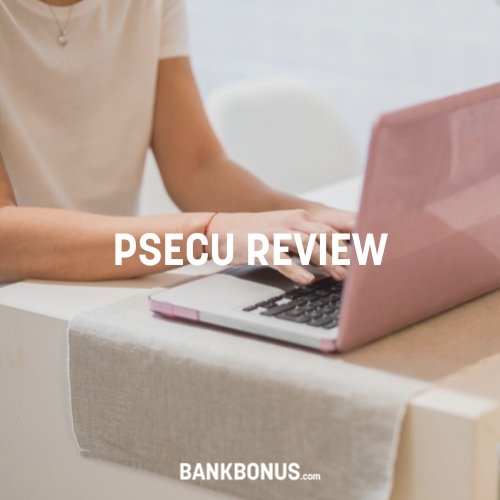With approximately 2,200 branches in 28 states (including DC), PNC Bank is one of the largest financial institutions in the United States.
PNC’s history dates back to 1845 when it was first established as the Pittsburgh Trust and Savings Company.
Today, PNC serves more than 8 million customers, offering deposit accounts, credit cards, and other financial services. It’s also one of the biggest Small Business Administration (SBA) lenders in the country.
PNC is a big bank, but it’s also regional, so keep in mind the accounts the bank offers may vary depending on where you live.
Let’s take a look at its current account offerings.
PNC Bank Checking
Here are PNC Bank’s current checking account options:
Virtual Wallet
PNC’s Virtual Wallet is an all-in-one banking package that combines checking and savings.
Each Virtual Wallet gives you access to a Spend primary checking account, Reserve short-term savings account, and a Growth long-term savings account.
Spend has two different tiers:
- Virtual Wallet: Virtual Wallet is the middle tier account, which comes with a $7 monthly fee. To avoid the monthly fee, you need monthly direct deposits of at least $500 or a $500 minimum deposit in your checking account.
- Virtual Wallet with Performance Select: Virtual Wallet with Performance Select offers the highest relationship rates on Growth account balances and waives all out-of-network ATM fees and domestic wire fees. To avoid the $25 monthly fee, you need to maintain a balance or receive monthly direct deposits of $5,000 or more or have at least $25,000 in related PNC accounts.
PNC Simple Checking
PNC Simple Checking a basic tier checking account, which comes with a $5 monthly fee.
To avoid the monthly fee, you need monthly direct deposits of any amount in your checking account.
There are no overdraft fees and you’ll have access to the PNC Mobile app and Online Banking to help manage your daily banking needs.
Learn More:
PNC Bank Savings
Here are PNC Bank’s current saving account options:
Standard Savings
Standard Savings is, as it sounds, a standard savings account. There is no minimum deposit requirement and a $5 monthly service charge.
To avoid the fee, you need to maintain an average monthly balance of $300 or more, OR make at least one auto transfer of at least $25 per month, when linked to a select PNC checking account OR you need to be an account holder under age 25.
The Standard Savings account doesn’t earn much interest with an APY (annual percentage yield) of 0.01%.
High-Yield Savings
PNC’s high-yield savings option is an online account that currently earns a competitive 3.30% APY.
The account has no minimum balance requirements or monthly fees and comes with access to digital banking tools and mobile check deposits.
Unfortunately, this account isn’t available in several of the states PNC serves. You can enter your zip code on PNC’s website or contact a representative to determine whether or not your location is eligible for the account.
Virtual Wallet: Savings
To go along with your Spend checking account, PNC includes two specialized savings features:
- Reserve is a secondary checking accounts to reserve funds for planning upcoming event bills, or emergency fund.
- Growth is a long-term savings account that earns interest and serves as a place to build up toward bigger goals (e.g., a down payment on a home or a new car).
PNC Premiere Money Market Account
PNC’s Premiere Money Market is a savings account alternative that comes with FDIC protection. The interest rates are typically better than in the bank’s savings accounts with a variable promotional rate of up to 3.75% in select markets.
There’s no minimum deposit, and you need an average monthly balance of at least $5,000 to get around the $12 monthly fee.
After the promotional APY period (if applicable), should your balance dips under the fee-waiver threshold, the $12 monthly fee can easily wipe away any interest earnings that you are hoping to achieve.
This account is not ideal for people who cannot consistently maintain at least a $5,000 balance.
‘S’ Is For Savings
‘S’ is for Savings is a kid’s bank account that helps young children learn financial basics like saving and budgeting through an interactive, online experience.
The account doesn’t have an initial deposit requirement, and there’s no monthly fee for account holders who are younger than 25 or individuals with an average monthly balance of at least $300.
You can also waive the $5 fee with a monthly automated transfer of at least $25 from your PNC checking account.
It even comes with some tips from Sesame Street.
PNC Certificates of Deposit (CDs)
Fixed-Rate CD
Fixed-Rate CDs come with term lengths that range from 7 days to 10 years. The APY currently maxes out at 0.03% with qualifying deposits totaling at least $25,000. With that said, PNC does offer promotional rates too, which are higher.
Learn More:
PNC Credit Cards
Next, let’s take a look at PNC Bank’s top credit card products.
PNC Cash Rewards Visa
Cash Rewards is a no annual fee cash back credit card that pays 4% back on gas, 3% on dining, 2% at grocery stores, and 1% on all other purchases on your first $8,000 spent in these categories.
Cash Rewards also comes with an intro APR of 0% on balance transfers for 12 months, making this a solid option to earn rewards while paying down the debt from another card.
PNC Core Visa
Core Visa is a no-annual-fee card that also comes with no interest on balance transfers or purchases for the first 15 billing cycles.
There are no rewards to earn here, but it’s a good option if you’re looking to build your credit or pay down existing debt.
PNC Points Visa
With Points, you can earn four reward points for every dollar spent on purchases.
There’s also an opportunity for bonus points if you hold deposit accounts with PNC. And you’ll get a 50,000-point bonus if you make $750 of purchases in the first three months.
There’s no annual fee, and you can cash out your points for thousands of rewards, including cash, gift cards, electronics, and travel.
PNC Premier Traveler Visa Signature
Premier Traveler is a travel rewards card that earns two miles for every dollar in purchases.
There are no spending categories, so every transaction will earn at the same rate. There are also 30,000 bonus miles up for grabs if you spend $3,000 or more within the first three months of account opening.
Premier Traveler has no annual fee for the first year, but it’s $85 for every year after that.
PNC Bank Features
- Accessibility: PNC has a brick-and-mortar presence in 28 states, with more than 2,600 locations throughout the Midwest, Mid-Atlantic, and Southeast. Outside of Texas, there aren’t any locations west of the Mississippi River, and PNC has only a few locations in New England.
- 60,000+ Fee-Free ATMs: There are more than 60,000 PNC and Partner ATMs coast to coast. All of these ATMs are available to PNC customers for fee-free access.
- Online Banking: PNC’s secure online platform allows you to schedule and pay bills, transfer money, keep track of your eStatements, and set account alerts.
- PNC Mobile App: Within the PNC mobile app, you can keep an eye on your balance, take care of bills, send money to others, or access customer service. The app is well-liked by current customers, with a 4.8-star (out of 5) rating in the App Store and 4.4 stars (out of 5) in the Google Play Store.
PNC Bank Fees
Monthly Service Fees
Like most bigger banks, PNC has its share of monthly charges with almost every account.
The good news is that they’re all avoidable. Here’s a look at the fees for each account:
| PNC Account | Service Fee | Avoidable? |
| Simple Checking | $5 | Yes |
| Virtual Wallet | $7 | Yes |
| Virtual Wallet With Performance Select | $25 | Yes |
| Standard Savings | $5 | Yes |
| Premiere Money Market | $12 | Yes |
| High-Yield Savings | $0 | N/A |
| ‘S’ Is For Savings | $5 | Yes |
Non-PNC ATM Fees
PNC has plenty of branded and partner ATMs in the United States. But if you’re traveling or need to use a non-PNC ATM, you may pay a small fee, plus whatever the ATM charges you.
Some accounts will reimburse some of these fees.
For example, Virtual Wallet with Performance Select includes no charge for using other banks’ domestic or international ATMs and up to $10 fee reimbursement per statement cycle for other banks’ ATM surcharge fees.
Wire Transfer Fees
PNC charges $15 for incoming domestic wires, $30 for agent-assisted outgoing wires, and $25 for self-service wires.
Some accounts come with a free wire transfer per statement period, so be sure to take advantage of it if wires are a service that you frequently plan to use.
Debit Card Replacement Fees
If you lose your debit card, there’s no fee to replace it. If you need a new one in a hurry, it’ll cost you $25 to have it expedited.
On the whole, it is not common for banks to charge debit card replacement fees.
Getting Started
Signing up for an account can be done online, over the phone, or at your local branch.
Online, the process should take less than 10 minutes, and you could get an immediate response about your application status.
All you need is your social security number and a government-issued photo ID.
Once your account is ready, you can make your initial deposit and gain access to online and mobile banking services.
PNC Bank Promotions
Here are some of the best PNC Bank promotions going on right now:
1. PNC Checking - up to $400 bonus
Expires: February 26, 2026
Available Nationwide (digitally), or in person at branches across 28 states, PNC is back with a competitive welcome bonus for opening a personal checking account online and meeting direct deposit requirements within the first 2 months.
This is a tiered offer with the entry level Virtual Wallet® offering $100 or $400 for opening a Virtual Wallet® with Performance Select - all with qualifying direct deposit requirements.
Assuming you don't have an account with PNC (and haven't within the last 12 months or received a prior consumer checking signup bonus in the past 24 months), we definitely recommend grabbing this easy bonus.
How to earn the bonus
The PNC Checking sign up offer requires you to set up eligible direct deposits in order to earn the $400 bonus. Full requirements to receive this bonus are:
- Open a PNC Checking account online to qualify, See link below.
- Within 60 days, complete the direct deposit requirements for the account package that you opened: Virtual Wallet® - $500+ to earn $100 bonus or Virtual Wallet® with Performance Select - $5,000+ to earn $400 bonus.
- Bonus will be credited to your account within 60-90 days after meeting requirements.
Apply now to earn the $400 bonus from PNC
2. Business Checking Account - $400 bonus
Expires: March 31, 2026
PNC is running a couple of welcome bonus offers targeting small business owners. For this one, you'll need to open either a Business Checking or Business Checking Plus account and then meet balance and debit card requirements.
This is a straightforward, nationally-available bonus for business owners.
If your company has higher balances or transaction volume, PNC is running a larger bonus for their enterprise checking accounts, so check those out, too!
How to earn the bonus
The Business Checking Account sign up offer requires you to deposit and maintain a minimum balance and make purchases using the account's card in order to earn the $400 bonus. Full requirements to receive this bonus are:
- Open a new Business Checking or Business Checking Plus account.
- For 3 statement cycles, maintain an average balance of $2,000.
- During those same statement cycles, make 20 debit card purchases.
- Bonus will be deposited within 90 days of meeting the requirements.
Apply now to earn the $400 bonus from PNC
3. Enterprise Checking Account - up to $1000 bonus
Expires: March 31, 2026
PNC is running a couple of welcome bonus offers targeting business owners and has added an option that doubles the bonus amount from last year if you have enough cash. For this one, you'll need to open either a Treasury Enterprise Plan or Analysis Business Checking account and then meet balance requirements.
This is a straightforward, nationally-available bonus for business owners.
If you're a small business owner with smaller balance or transaction volume, PNC is also running a $200 bonus for their small business checking accounts, so check those out, too!
How to earn the bonus
The Enterprise Checking Account sign up offer requires you to deposit and maintain a minimum balance in order to earn the $1000 bonus. Full requirements to receive this bonus are:
- Open a new Treasury Enterprise Plan or Analysis Business Checking account.
- For 3 statement cycles, maintain at least a $30,000 balance to earn $500 or at least $100,000 to earn $1,000.
- Bonus will be deposited within 90 days of meeting the requirements.
Apply now to earn the $1000 bonus from PNC
Learn More:
PNC Bank Security
Like all banks, security is a top priority at PNC. You can get the whole picture by checking out its online security and privacy center, but here are just a few of the ways that PNC works to keep you and your money safe:
- Extended Validation Secure Socket Layer (SSL) Encryption
- FDIC Insurance
- Security tools and tips to help prevent fraud
- Customer service on standby if you suspect fraud
- Customizable account alerts
- Free online fraud protection software
- Multi-layered security questions at login
Customer Service
When you need some support, PNC has several different avenues for you to get in touch with customer service. You can call, message, visit branch, or hit them up on social networks like Facebook, Instagram, X [former: Twitter].
The customer service phone line is open Monday through Friday from 8 am to 9 pm Eastern Time. On weekends, phone support is available from 8 am to 5 pm.
The website is also full of helpful FAQs and videos for when you’d rather try to figure out a problem on your own.
Overall, customers’ impressions of PNC’s customer service seem to be mixed. The bank currently holds a 1.3-star (out of 5) on Trustpilot but it also has an A+ rating from the BBB.
Pros & Cons
Pros:
- Big bank with lots of locations in the Midwest
- Traditional and online accounts
- High-yield savings option
- Highly-rated mobile app
Cons:
- Low-interest rates
- Some accounts available in limited markets
- Too many fees
- Mixed feelings about customer service
Alternatives to PNC Bank
If PNC sounds good to you, but you don’t live in one of its main service areas, there are a few options that you could check out.
TD Bank and Capital One both serve more of New England and the East Coast, and have a similar feel being large banks, but not too large, with a mix of online and in-person offerings.
If you’re interested in a bank with more of a national presence, take a look at Bank of America, Chase, or Wells Fargo.
FAQs
Is PNC a good bank?
PNC is a large, well-established bank with several account options and a top-notch mobile banking experience. However, it does come with several account fees and isn’t available in every state.
Is Bank of America or PNC better?
It depends on what you’re looking for and where you are located. For example, PNC doesn’t have a presence in New England outside of Boston, where as BoA is everywhere.
In general, BoA has a much wider national presence, so you’ll probably have better luck finding a location when you’re traveling.
That said, some PNC accounts offer higher interest rates. Across the board, BoA’s interest rates tend to be lower and in line with the national average.
PNC also takes the edge when it comes to earning potential on sign-up bonuses.
Finally, BoA doesn’t have any product that comes close to PNC’s high-yield savings account.
Is PNC going out of business?
No. PNC is not going out of business. However, in response to the Covid-19 pandemic, PNC downsized its number of physical branches. In 2023, PNC announced the closure of at least 203 more branches, with a shift to a stronger focus on digital banking.
What is PNC Bank known for?
PNC is one of the biggest banks in America and has been well-known in the banking space since the 19th century. The bank is known for its personal and business banking products, loans, and financial services, along with being the home to the Pittsburgh Pirates.
Is PNC Bank Right For You?
To answer this question, the first step is to head to its website, enter your zip code, and see if you qualify for an account.
You might be excited about one of the accounts that we covered here, but since PNC is a regional bank, you may not be able to sign up.
That being said, there is a lot to like about PNC. Between interest-bearing checking accounts, a solid high-yield savings account, and widespread presence, PNC is a model for a traditional bank that’s progressing into the digital age.
Whether you’re looking to open your first account, or seeking out a new banking partner, keep searching until you find the bank that meets your financial goals.
Opinions expressed here are the author’s alone, not those of any bank or financial institution. This content has not been reviewed, approved or otherwise endorsed by any of these entities.





Comments are closed.
Comments are closed here.